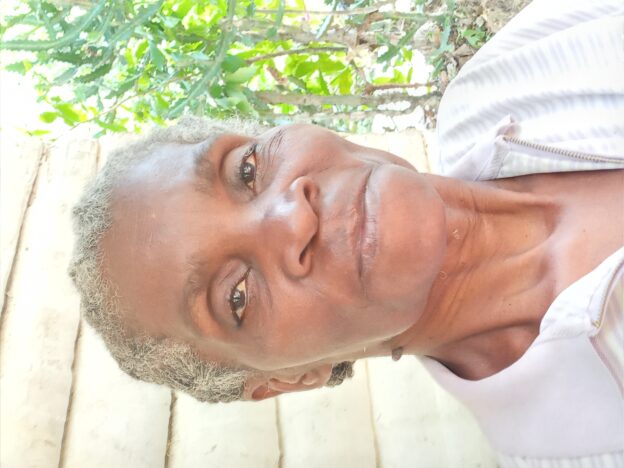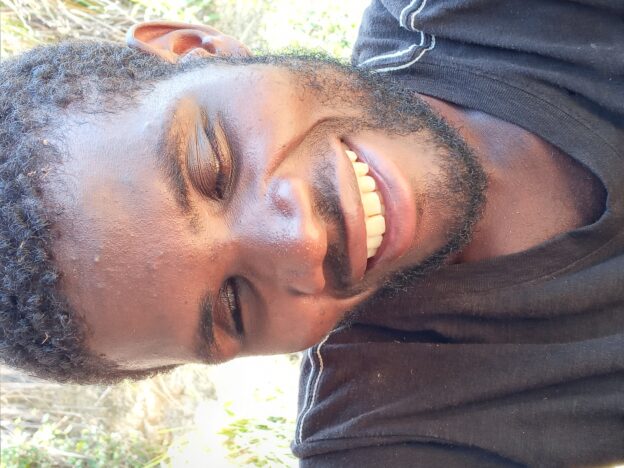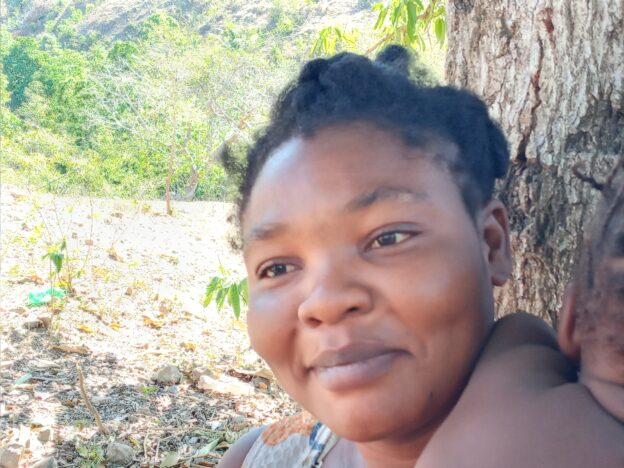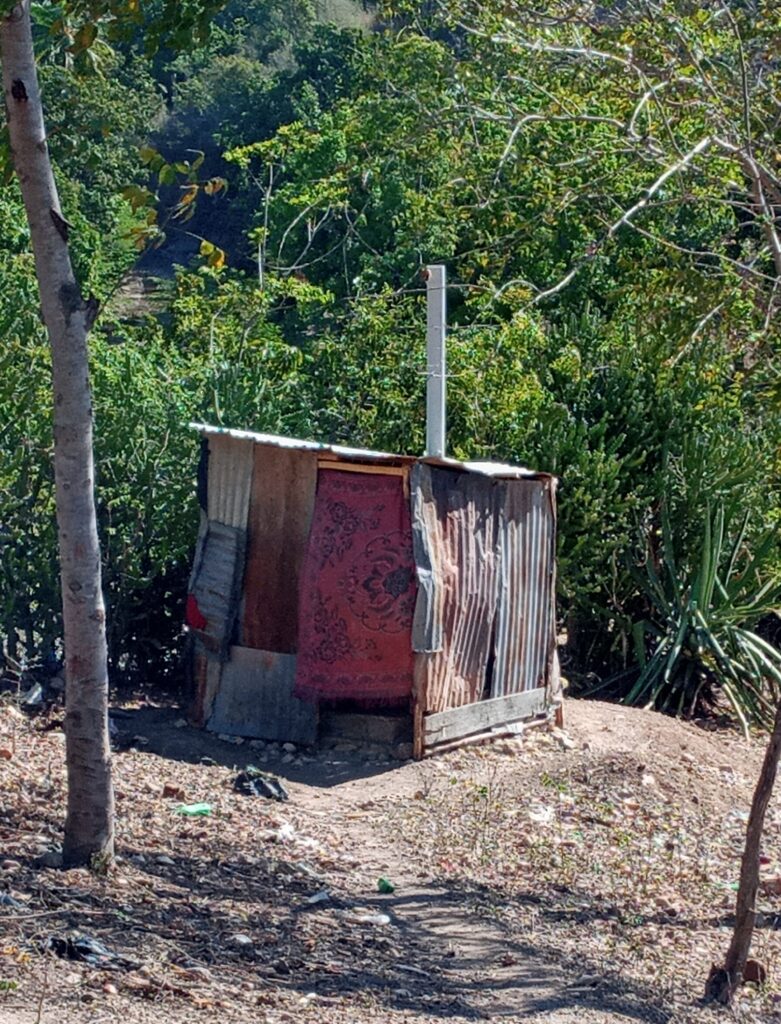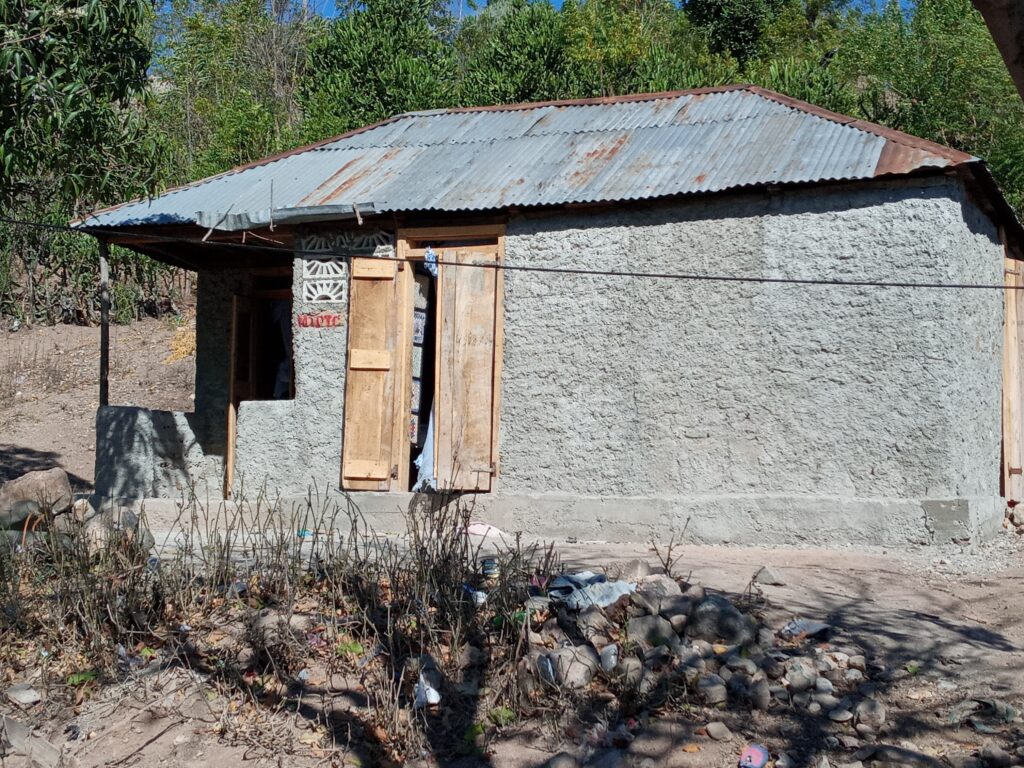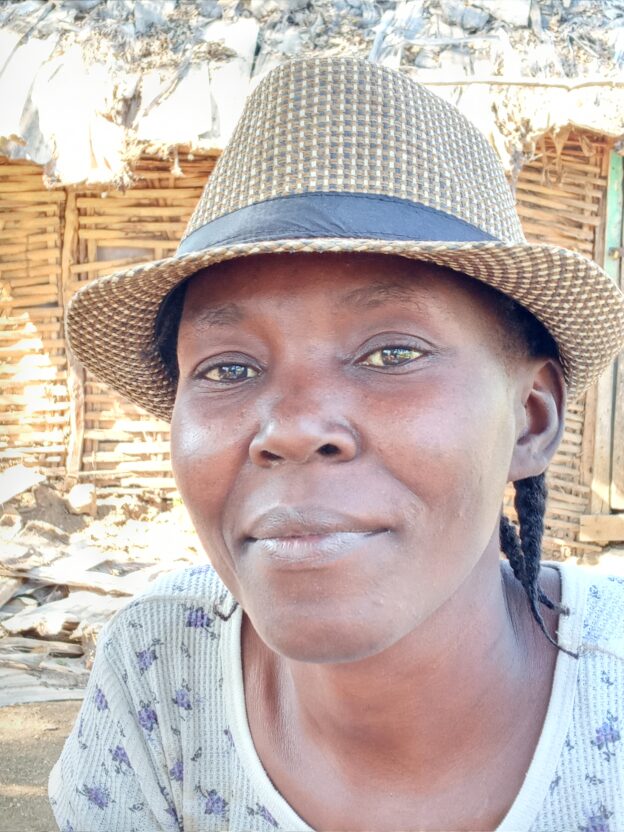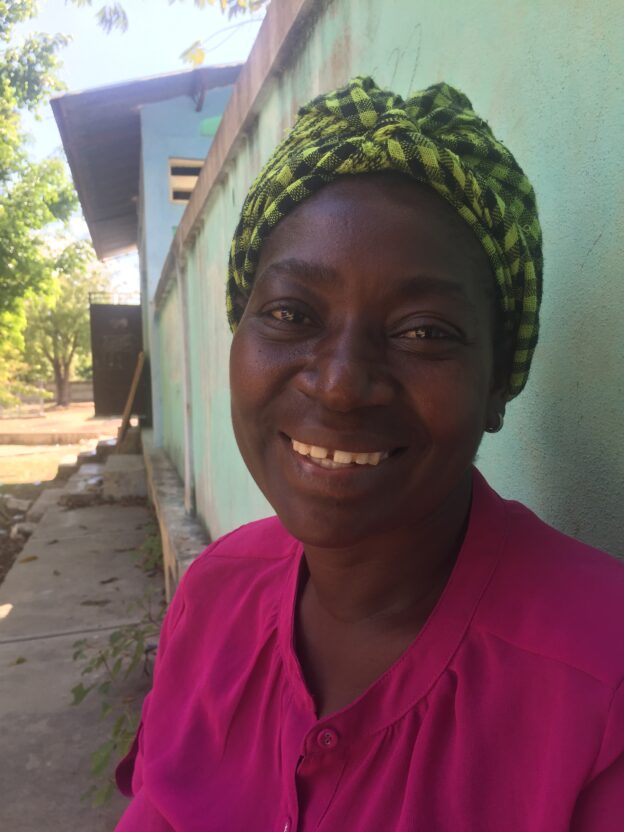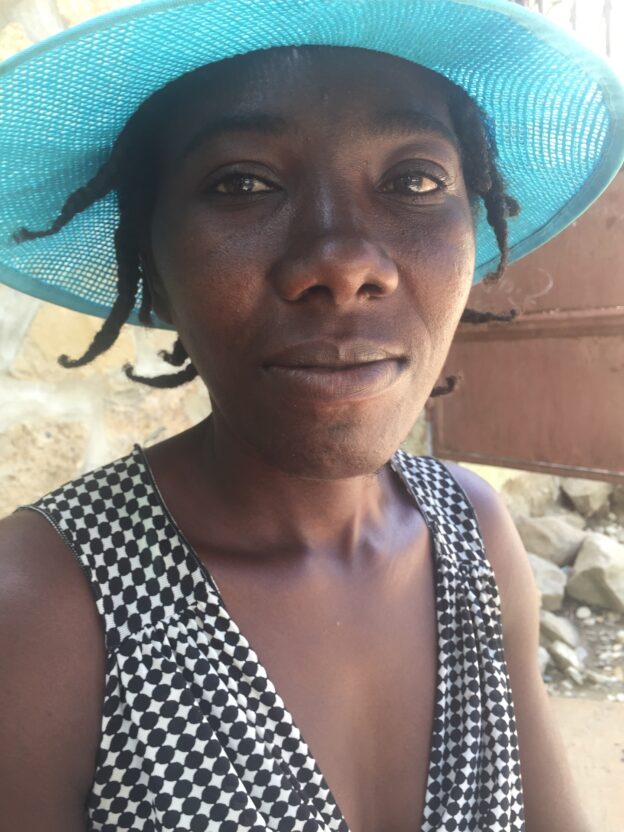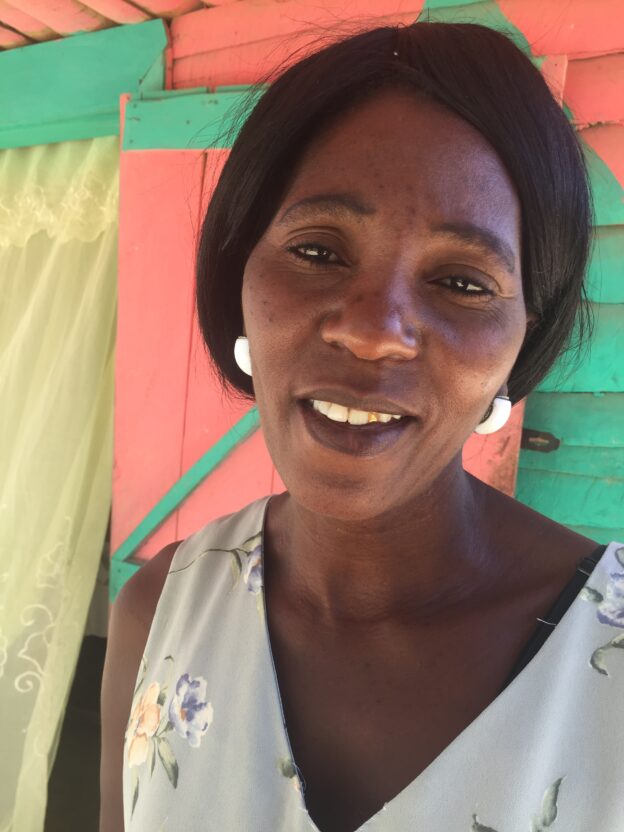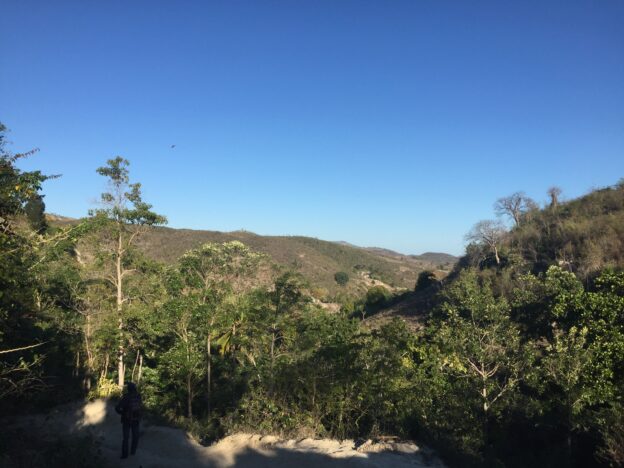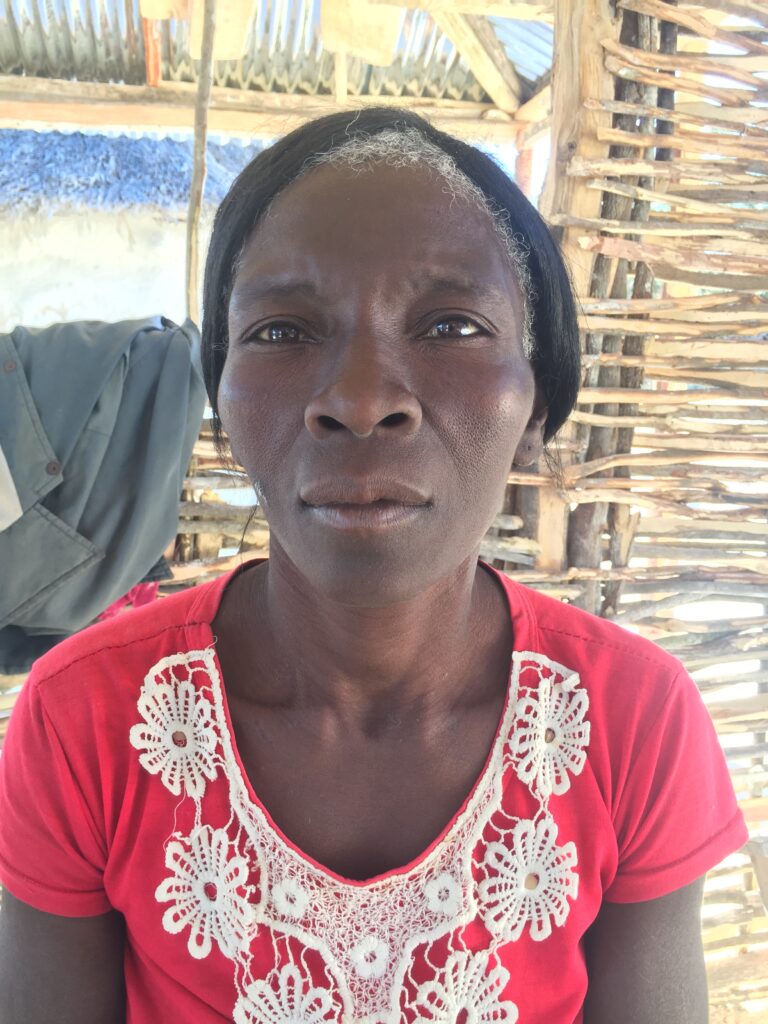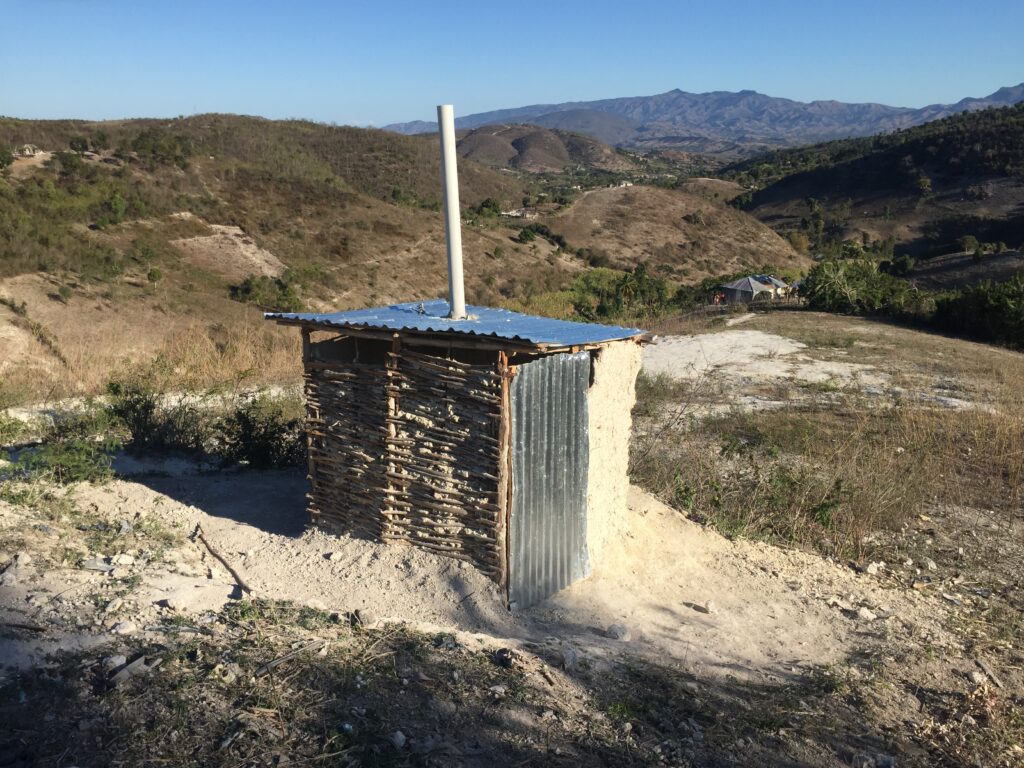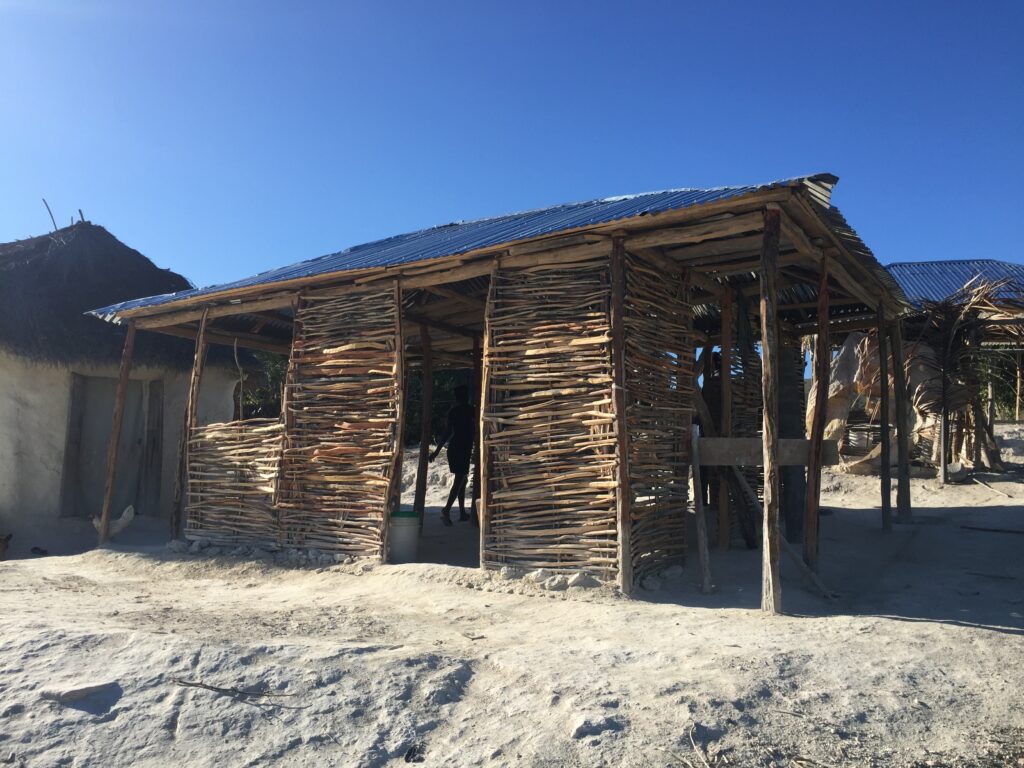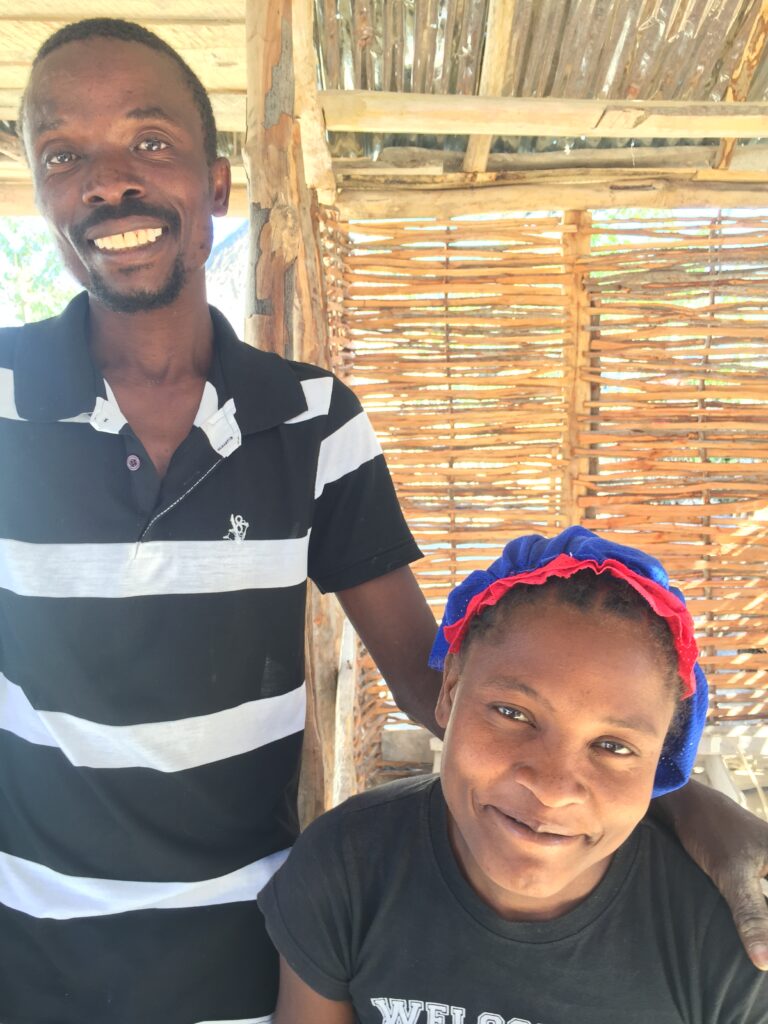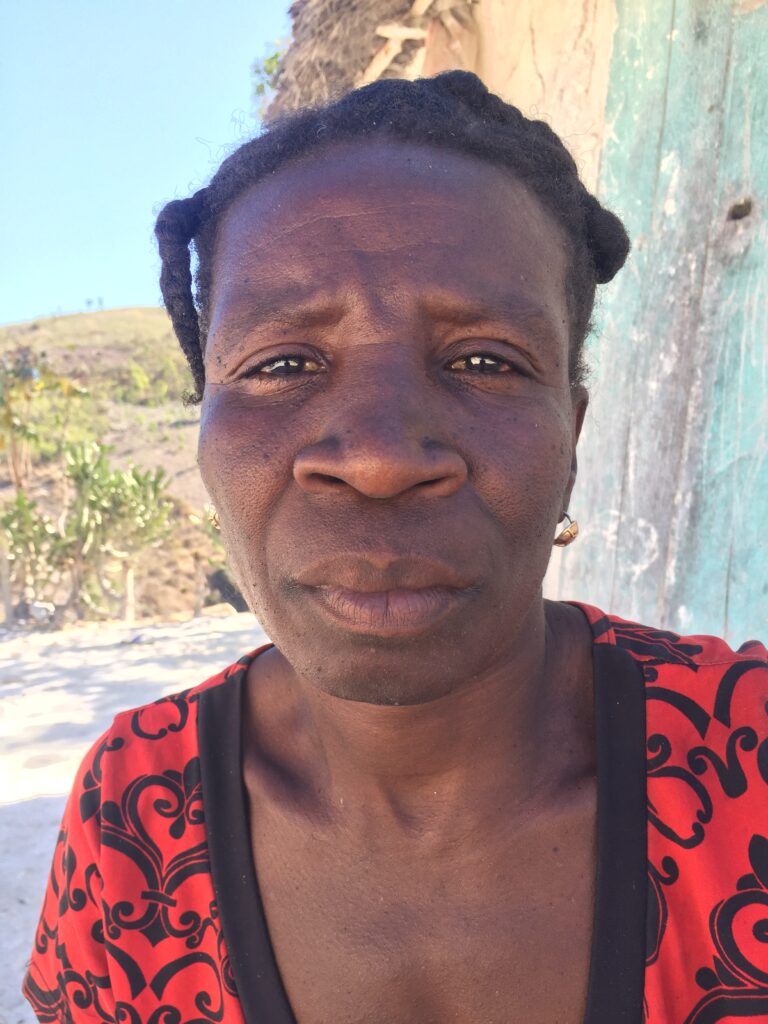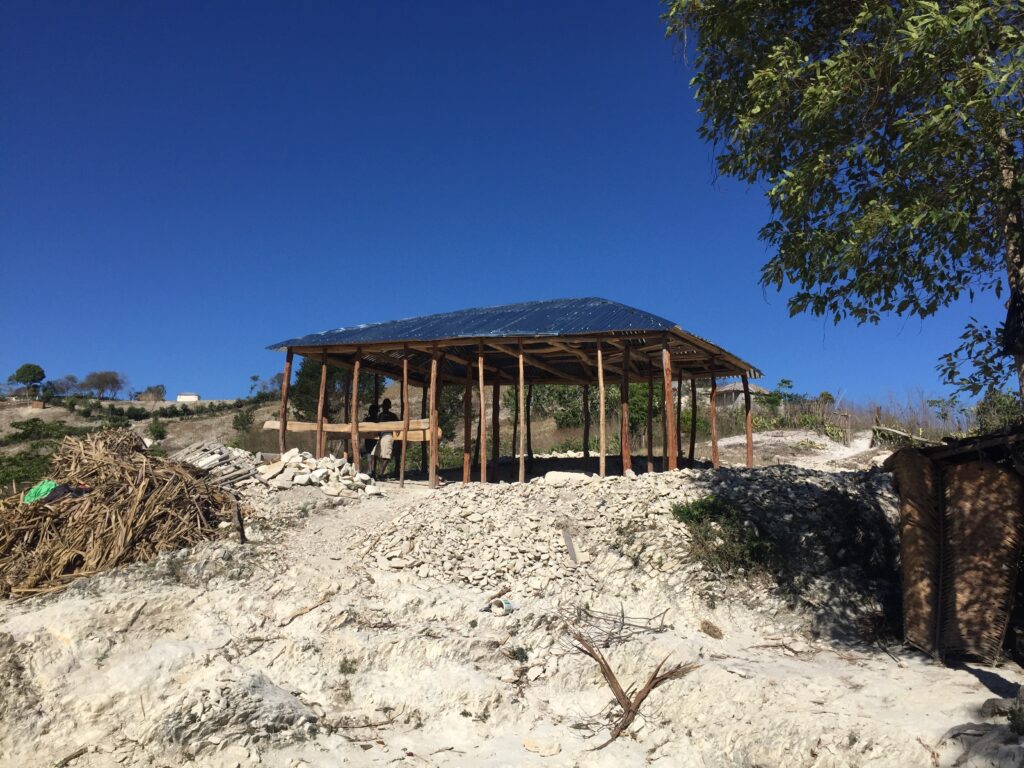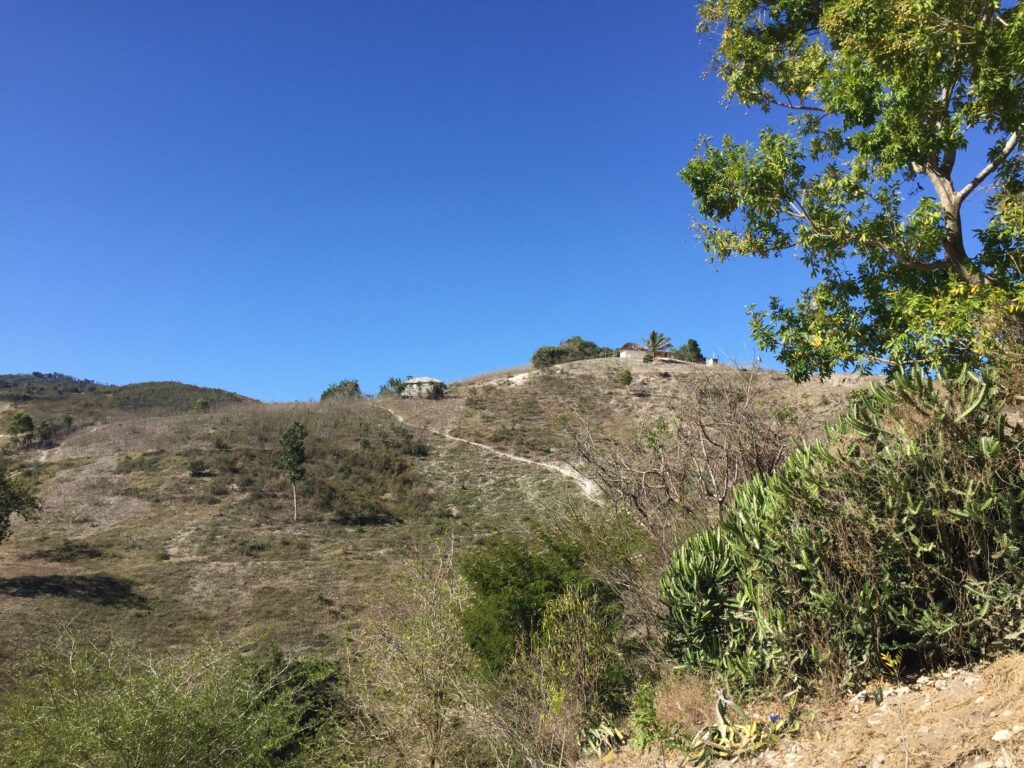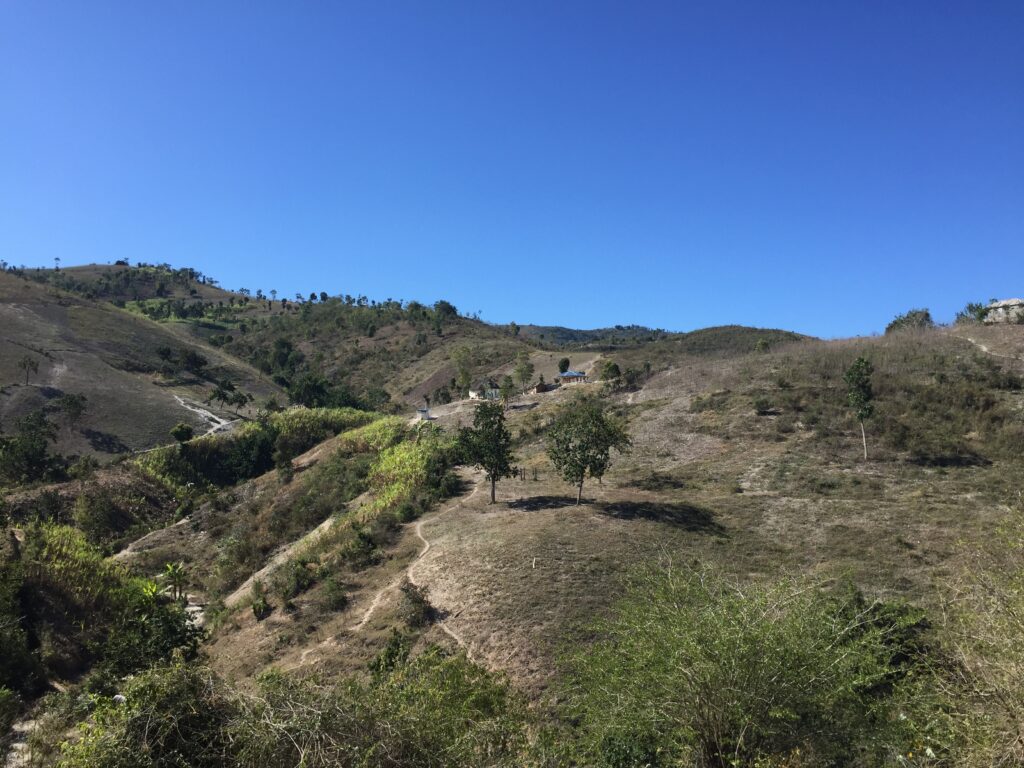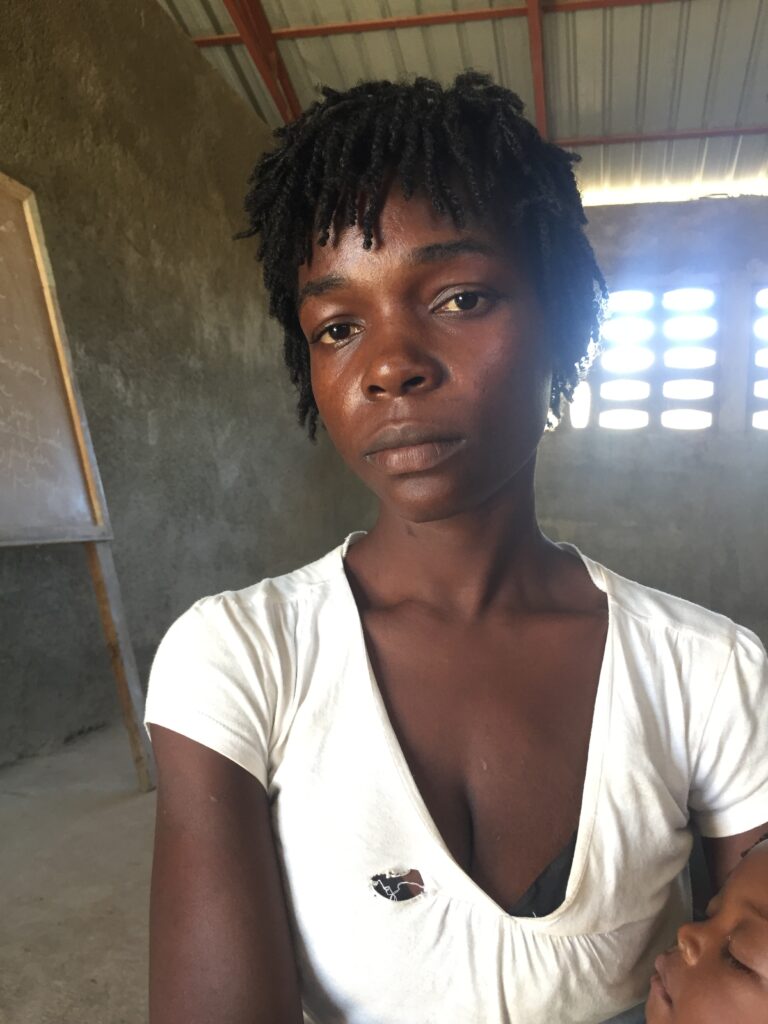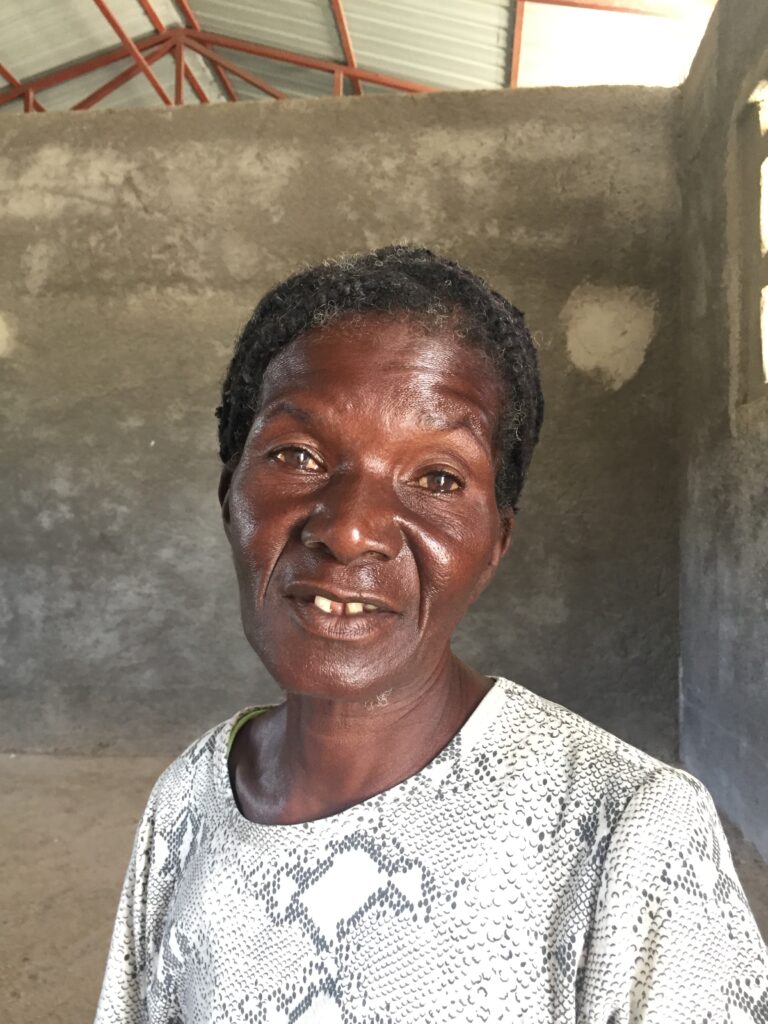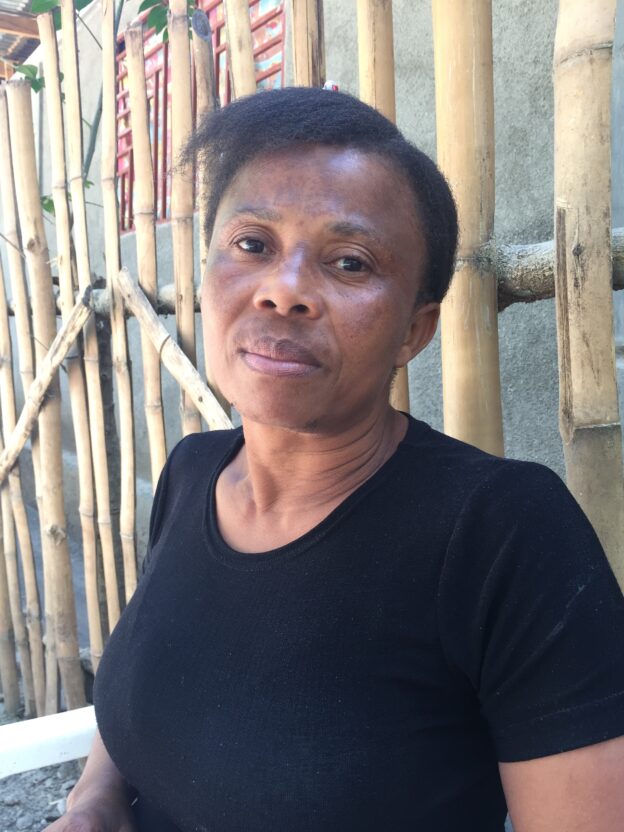In 2015, Sonia Pierre joined the CLM pilot for persons with disabilities. I wrote about her and her neighbor, Mimose, in 2016. (See this link.) A stroke had left her partially paralyzed on her right side. Getting around was difficult for her. On entry into the program, she depended on her daughter and her neighbor for the food she ate. When she left the program, however, she had livestock, a small commerce, and a home in good repair. She had also learned to save.
But four years later, things aren’t going well. Her paralysis has gotten much worse. Both feet are now affected. She can’t walk farther than the area immediately surrounding her house, her right hand is now entirely useless, and even speech is now a struggle. For her adult daughter, the explanation is simple. “When my mother was part of CLM, she was going to the clinic regularly. They’d check her blood pressure, and give her medication.”
In the years following the program, however, getting to the clinic, though Partners in Health runs one only minutes away from her home, became more difficult. Eventually, Sonia stopped going at all.
Sonia’s increasing limitations meant she couldn’t take care of her livestock, and it all died. She couldn’t manage her small commerce either, and it disappeared. She still lives in the small house that CLM helped her repair with her daughter and granddaughter, but now her daughter is entirely responsible for the household. The younger woman supports herself, her mother, and her daughter with small commerce. She works the markets in Laskawobas, Mache Kana, and Kolonbyè as a machann kase lote. That means that she goes to the market with her capital, buys something in bulk, breaks it up (kase), and puts it into small piles (lote) for sale. She stays in the market until she sells out. Generally, she buys some kind of produce, like tomatoes, onions, sweet potatoes, okra, peppers: anything she thinks she can sell. For now, she is managing to take care of her mother, but the small savings Sonia had built up when she was active are gone, and the younger woman hasn’t been able to build savings.
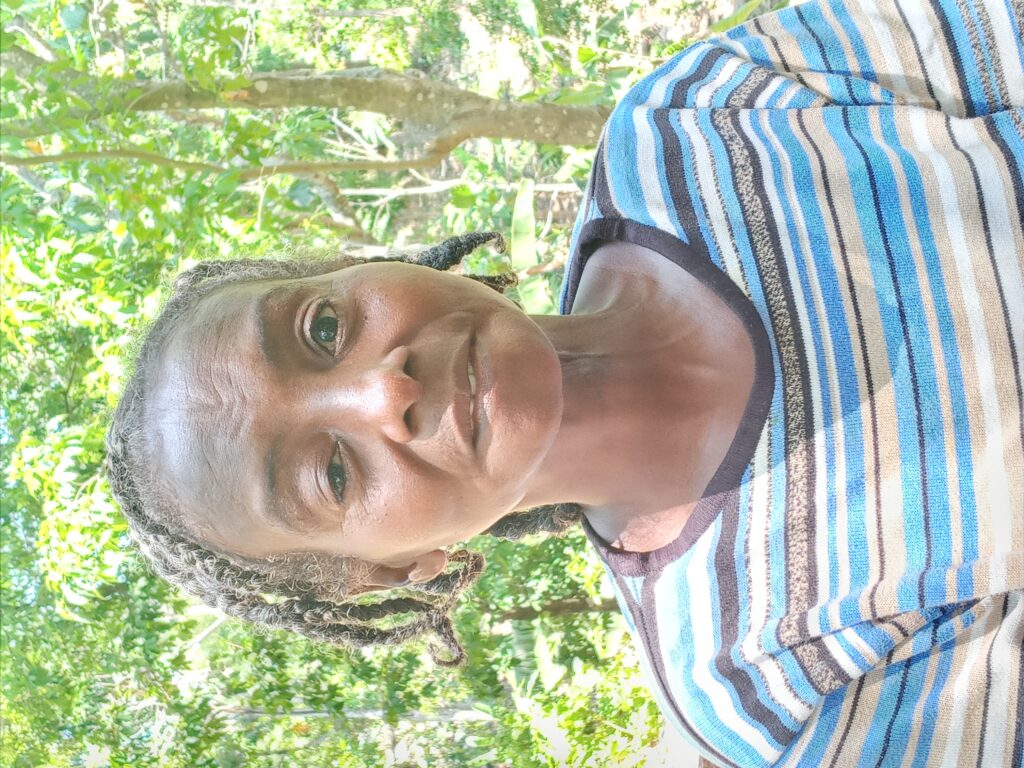
Mimose Florvil is doing much better. “When CLM came, I had nothing at all. I was alone.” But Mimose established a business while in the program. She sold marinad, a seasoned fried dough popular in Haiti, by the side of the road that passes next to Sonia’s house. She would set up her stand in Sonia’s yard, and the two friends would spend the day chatting while Mimose sold her wares.
Four years later, the business is still going strong. She sells Monday through Saturday, though Wednesday and Saturday are the best days. “I sell more on market day, to people going to and from the market.”
She changed her product, though. The marinad always sold well, but she decided to give them up. “Oil got too expensive, and frying marinad takes a lot of oil.” Now she sells pate — small , stuffed turnovers — instead. Pate are fried too, but she explains that they don’t require as much oil as marinad do. “In downtown Laskawobas, they fill pate just with herring, but here we mix the herring with onions.” Like Sonia, Mimose lives with limited mobility. She gets around better than she did when she joined CLM, and much better than Sonia, but it is still a struggle. Getting to the market in Laskawobas would be a challenge, but Sonia’s daughter is willing to do all her shopping for her.
Mimose still keeps a small collection of livestock. She has goats, turkeys, and ducks. She hasn’t been able to increase her holdings, but it leaves her feeling as though she has a form of insurance in case something goes wrong,
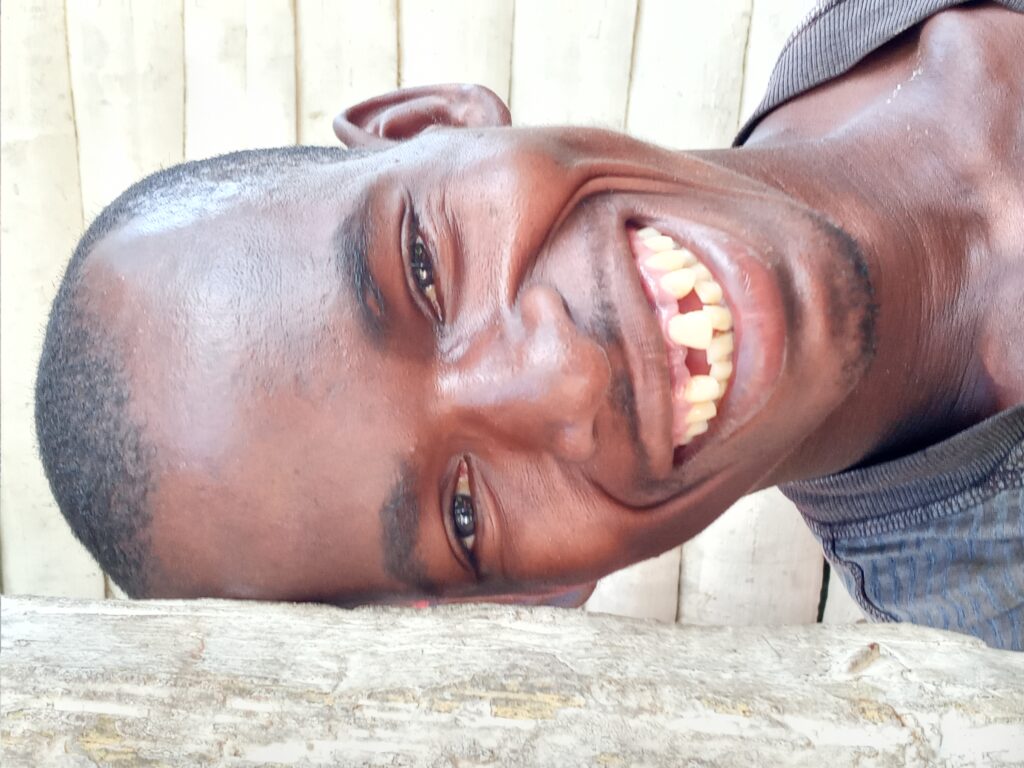
Pierre Floral was in the program together with Sonia and Mimose. He’s a farmer, working land that belongs to his elderly father. He plants corn, beans, and pigeon peas. When he’s not too busy with his own crops, he’ll sell a day of work to another farmer. He walks with a heavy limp because a childhood accident permanently damaged one of his legs. One of his arms was also affected.
Of the three of them, Pierre is the one who insists most strongly that his life was improved through CLM, even though he has very little progress he can cite. When he is asked how the program helped him change his life, he points to just one thing. CLM helped him build his house. Before he joined the program, he was homeless, spending nights on porches in his neighborhood. “I had been living with my aunt, but she was always so mean to me. Eventually I left. I’d stay with other people, getting up and going to sleep whenever I had to. Now I have my own home.”
He wasn’t able to finish the home while he was a CLM member. At the end of 18 months, its roof and its walls were still unfinished. But he kept at it, and finally completed the work, down to all its windows and doors. He is happy to be able to lie down and get up whenever he wants. He never has to worry about being in anyone’s way.
He continues to save in the lockbox that he learned to use as part of CLM. The training he received around saving was based on an approach called “More than Budgets,” which was developed by Dawn Elliott, a professor at TCU. There’s no money in his box right now, but that’s only because he just invested his savings in his fields this spring. He won’t have enough income to save until harvest.
